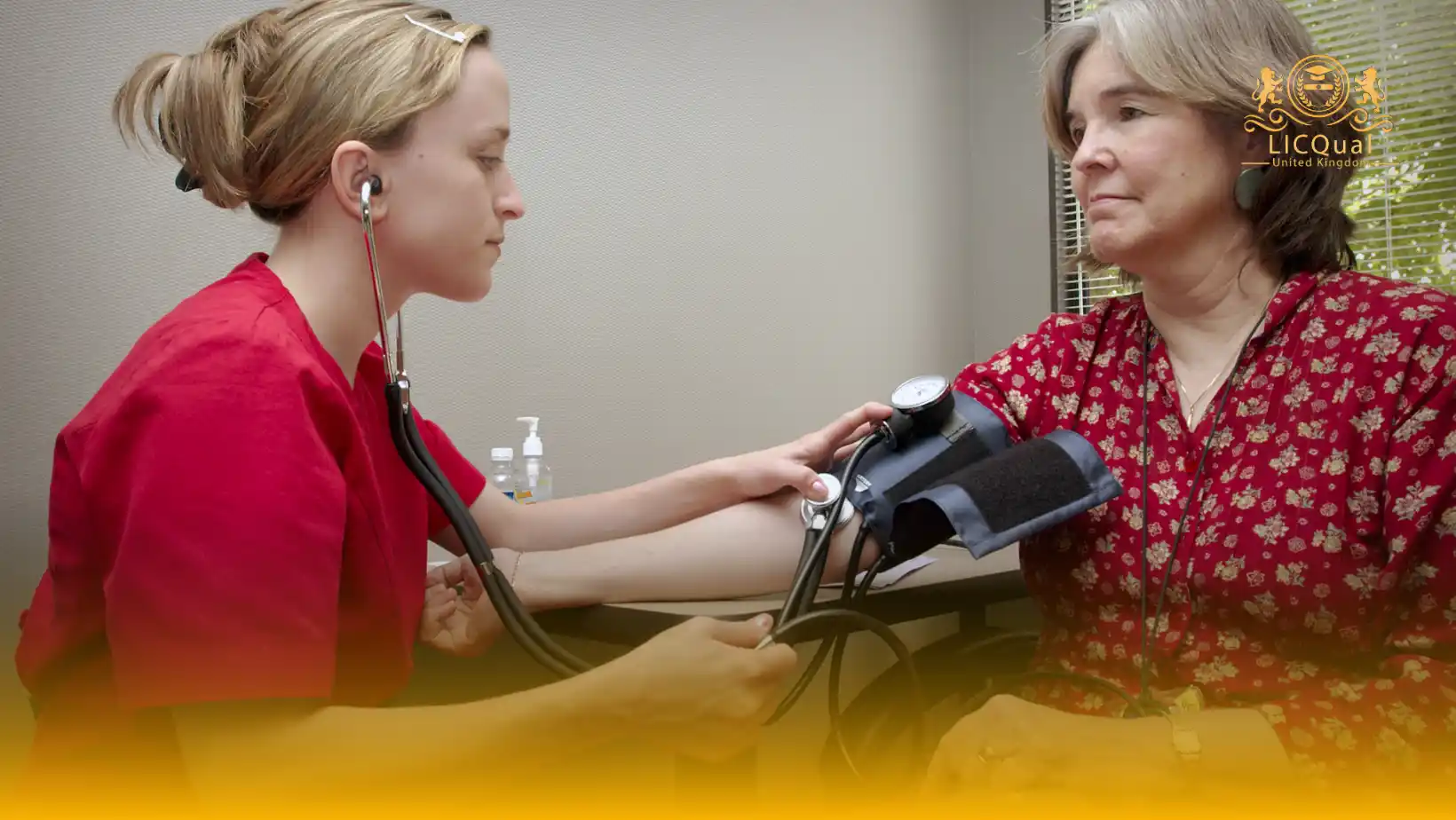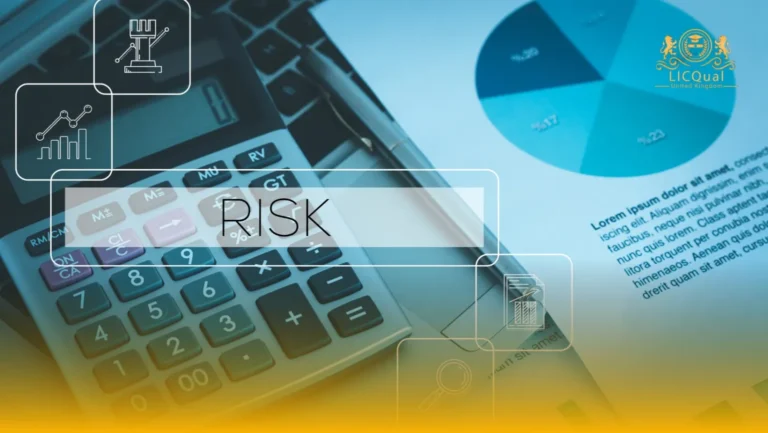The LICQual Level 6 Diploma in Public Health (Dip PH) is a specialised qualification designed for healthcare professionals, policymakers, and practitioners who wish to advance their expertise in the field of public health. This diploma is not intended for fresh candidates; rather, it is tailored for individuals with prior knowledge and experience who aim to strengthen their career prospects, expand their skills, and enhance their Continuing Professional Development (CPD).
The course equips learners with a deep understanding of epidemiology, health promotion, disease prevention, global health challenges, and evidence-based public health strategies. It provides the knowledge and analytical skills needed to design, implement, and evaluate effective public health policies and programmes. Learners will also gain insight into leadership in healthcare, community health management, and ethical decision-making in complex health scenarios.
Centres delivering this diploma must ensure that they have qualified and competent staff, along with access to relevant public health resources, research materials, and modern learning tools. This ensures that learners receive a high-quality training experience that meets international standards and prepares them for real-world public health challenges.
By completing the LICQual Level 6 Diploma in Public Health, learners will be well-positioned to contribute to health system improvements, lead community health initiatives, and make impactful contributions at national and international levels.
Course Overview
Qualification Title
LICQual Level 6 Diploma in Public Health (Dip PH)
Total Units
6
Total Credits
120
GLH
480
Qualification #
LICQ2200922
Qualification Specification
To enroll in the LICQual Level 6 Diploma in Public Health (Dip PH), applicants must meet the following criteria:
|
Qualification# |
Unit Title |
Credits |
GLH |
|---|---|---|---|
|
LICQ2200922-1 |
Foundations of Public Health Practice |
20 |
80 |
|
LICQ2200922-2 |
Epidemiology and Disease Control |
20 |
80 |
|
LICQ2200922-3 |
Health Policy, Planning and Management |
20 |
80 |
|
LICQ2200922-4 |
Environmental and Occupational Health |
20 |
80 |
|
LICQ2200922-5 |
Global Health and Emerging Challenges |
20 |
80 |
|
LICQ2200922-6 |
Research Methods and Evidence-Based Practice in Public Health |
20 |
80 |
By the end of this course, learners will be able to:
Unit 1: Foundations of Public Health Practice
By the end of this unit, the learner will be able to:
- Explain the historical development and principles of public health.
- Assess the determinants of health and their impact on population health outcomes.
- Analyse the role of health promotion and disease prevention in public health practice.
- Evaluate health inequalities and propose strategies to address them.
- Apply ethical and legal considerations in public health decision-making.
Unit 2: Epidemiology and Disease Control
By the end of this unit, the learner will be able to:
- Demonstrate an understanding of key epidemiological concepts and methods.
- Design and interpret epidemiological studies for public health research.
- Assess patterns, distribution, and determinants of diseases within populations.
- Evaluate methods of communicable and non-communicable disease control.
- Apply epidemiological data to inform evidence-based public health interventions.
Unit 3: Health Policy, Planning and Management
By the end of this unit, the learner will be able to:
- Critically evaluate health policies at local, national, and global levels.
- Analyse the processes of health systems planning and resource allocation.
- Assess models of health service delivery and management strategies.
- Apply leadership and governance principles within public health contexts.
- Develop policy recommendations to address contemporary health challenges.
Unit 4: Environmental and Occupational Health
By the end of this unit, the learner will be able to:
- Explain the impact of environmental and occupational factors on human health.
- Evaluate strategies for managing environmental hazards and workplace risks.
- Assess the role of legislation and regulation in environmental and occupational health.
- Design interventions to promote safe and healthy environments.
- Analyse global issues such as climate change, pollution, and workplace health risks.
Unit 5: Global Health and Emerging Challenges
By the end of this unit, the learner will be able to:
- Assess the global burden of disease and its socio-economic implications.
- Evaluate international health initiatives, organisations, and collaborative frameworks.
- Analyse the impact of migration, conflict, and globalisation on public health.
- Assess strategies to address emerging health challenges, including pandemics.
- Critically examine sustainable approaches to improving global health equity.
Unit 6: Research Methods and Evidence-Based Practice in Public Health
By the end of this unit, the learner will be able to:
- Critically evaluate different research methodologies applicable to public health.
- Design a public health research project using appropriate tools and techniques.
- Analyse and interpret quantitative and qualitative data effectively.
- Apply principles of evidence-based practice in public health decision-making.
- Present research findings and recommendations to a professional audience.
The LICQual Level 6 Diploma in Public Health (Dip PH) is designed for healthcare professionals, medical graduates, and practitioners who want to advance their expertise in public health, preventive medicine, and community health management. This internationally accredited and CPD recognized Public Health Diploma UK provides the skills and credibility needed to build a successful career in healthcare leadership, policy, and practice.
1. Medical Graduates Seeking Specialization
- Gain a strong foundation in public health after graduation.
- Earn a Level 6 Diploma in Public Health online for flexibility.
- Obtain CPD accredited certification recognized worldwide.
- Improve employability in hospitals, NGOs, and clinics.
- Prepare for advanced roles in healthcare and policy.
2. General Practitioners and Doctors
- Enhance expertise in preventive medicine and population health.
- Strengthen skills in chronic disease management and health promotion.
- Gain internationally accredited qualifications for career growth.
- Improve patient-centered care with evidence-based strategies.
- Stay updated with evolving public health standards.
3. International Healthcare Professionals
- Obtain a UK accredited Public Health diploma.
- Meet global standards in healthcare delivery and policy.
- Access affordable and flexible online study options.
- Strengthen credentials for international career opportunities.
- Improve eligibility for roles in global health organizations.
4. Community Health Workers
- Develop skills in preventive and holistic healthcare.
- Learn strategies for family and community health promotion.
- Strengthen knowledge in primary care delivery.
- Earn internationally recognized certification.
- Improve career prospects in public health programs.
5. Public Health Policy Makers
- Gain advanced knowledge to design effective health policies.
- Learn evidence-based approaches to population health.
- Improve credibility with CPD recognition.
- Stay updated with international healthcare standards.
- Enhance leadership roles in government and NGOs.
6. Healthcare Educators and Trainers
- Build expertise to teach public health effectively.
- Use internationally accredited curriculum for training.
- Improve credibility with CPD accredited qualifications.
- Stay aligned with modern healthcare practices.
- Enhance teaching effectiveness in medical education.
7. Professionals Seeking Career Advancement
- Boost career prospects with a recognized diploma.
- Gain specialized skills in public health practice.
- Access flexible online learning for busy professionals.
- Strengthen qualifications for promotions and leadership roles.
- Position yourself for global healthcare opportunities.
Centres offering the LICQual Level 6 Diploma in Public Health must ensure they meet high-quality standards to provide learners with the best possible training experience. To deliver this qualification effectively, centres are required to have:
- Qualified and competent trainers with recognised expertise and professional experience in public health, epidemiology, healthcare management, and related disciplines.
- Comprehensive learning resources including up-to-date textbooks, journals, case studies, online databases, and digital learning platforms to support independent and guided study.
- Access to practical training facilities and simulation tools where applicable, ensuring learners gain both theoretical knowledge and applied skills.
- Strong academic support systems including mentoring, tutorial sessions, and academic guidance to ensure learner success.
- Reliable assessment and quality assurance procedures to ensure all evaluations are fair, valid, and in line with international education standards.
- Adequate IT infrastructure with internet access, e-learning systems, and digital tools to facilitate modern, interactive learning experiences.
- Policies for continuous improvement to maintain excellence in teaching, learner engagement, and programme delivery.
- Commitment to Continuing Professional Development (CPD) for staff, ensuring trainers remain up to date with the latest advancements in public health and global health practices.
- Administrative and learner support services to provide guidance throughout the duration of the course, from enrolment to certification.
By meeting these requirements, centres can ensure they deliver the LICQual Level 6 Diploma in Public Health at the highest standard, empowering learners with the knowledge and skills to address global health challenges.
Assessment and Verification
All units within this qualification are subject to internal assessment by the approved centre and external verification by LICQual. The qualification follows a criterion-referenced assessment approach, ensuring that learners meet all specified learning outcomes.
To achieve a ‘Pass’ in any unit, learners must provide valid, sufficient, and authentic evidence demonstrating their attainment of all learning outcomes and compliance with the prescribed assessment criteria. The Assessor is responsible for evaluating the evidence and determining whether the learner has successfully met the required standards.
Assessors must maintain a clear and comprehensive audit trail, documenting the basis for their assessment decisions to ensure transparency, consistency, and compliance with quality assurance requirements.







